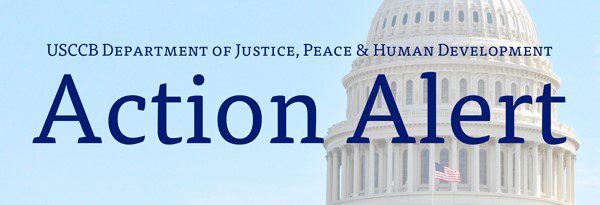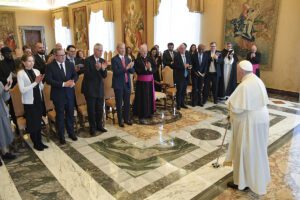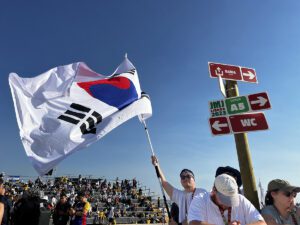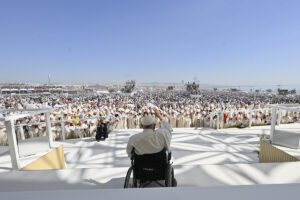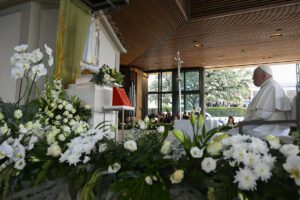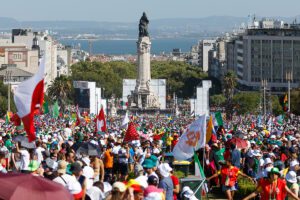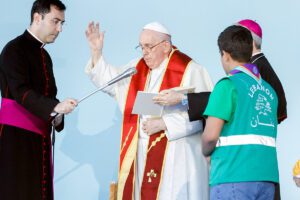WASHINGTON (OSV News) – The Biden administration has drawn criticism for its inclusion of abortion in a proposed rule for a bipartisan law guaranteeing protections for pregnant workers that had the support of Catholic, pro-life and Republican leaders.
The bipartisan Pregnant Workers Fairness Act was passed by Congress Dec. 27, 2022, signed into law by President Joe Biden Dec. 29 and went into effect in June. The law prohibits employment practices that discriminate against making reasonable accommodations for qualified employees due to their pregnancy, childbirth or related medical conditions.
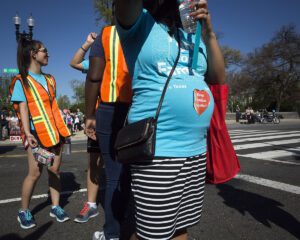
A rule proposed by the Equal Employment Opportunity Commission Aug. 7 governing the implementation of that law contains broad language including abortion among “related medical conditions,” and the potential circumstances for which employers may have to grant workplace accommodations, which can include time off or additional rest breaks.
In a statement, EEOC Chair Charlotte A. Burrows said the new law “is a step forward for workers, families and the economy. This important new civil rights law promotes the economic security and health of pregnant and postpartum workers by providing them with access to support on the job to keep working, which helps employers retain critical talent.”
Burrows said the EEOC welcomed the public “to provide meaningful feedback about how the proposal would impact workplaces and ways to assist employers and workers in understanding the law.”
The rule defines “pregnancy, childbirth, or related medical conditions” as inclusive of “current pregnancy, past pregnancy, potential pregnancy, lactation (including breastfeeding and pumping), use of birth control, menstruation, infertility and fertility treatments, endometriosis, miscarriage, stillbirth, or having or choosing not to have an abortion, among other conditions.”
Sen. Bill Cassidy, R-La., a medical doctor who is the ranking member of the Senate Health, Education, Labor, and Pensions Committee and worked to pass the legislation with Sen. Bob Casey, D-Pa., said in a statement the Biden administration “has gone rogue.”
“These regulations completely disregard legislative intent and attempt to rewrite the law by regulation,” Cassidy said. “The Biden administration has to enforce the law as passed by Congress, not how they wish it was passed. The Pregnant Workers Fairness Act is aimed at assisting pregnant mothers who remain in the workforce by choice or necessity as they bring their child to term and recover after childbirth. The decision to disregard the legislative process to inject a political abortion agenda is illegal and deeply concerning.”
Many pro-life advocates, including the U.S. bishops, supported the legislation, but criticized the proposed regulation.
In a statement, Bishop Michael F. Burbidge of Arlington, Virginia, chairman of the U.S. Conference of Catholic Bishops’ Committee on Pro-Life Activities, said the bishops supported the bipartisan Pregnant Workers Fairness Act “because it enhanced the protection of pregnant mothers and their preborn children, which is something that we have encouraged Congress to prioritize.”
“The Act is pro-worker, pro-family, and pro-life,” Bishop Burbidge said. “It is a total distortion to use this law as a means for advancing abortion, and the complete opposite of needed assistance for pregnant mothers.”
Bishop Burbidge said the EEOC’s proposed interpretation of the legislation to “include accommodations for obtaining an abortion is wrong and contrary to the text, legislative history, and purpose of the Act, which is to help make it possible for working mothers to remain gainfully employed, if desired, while protecting their health and that of their preborn children.”
“We are hopeful that the EEOC will be forced to abandon its untenable position when public comments submitted on this regulation demonstrate that its interpretation would be struck down in court,” he said.
In a statement, Alliance Defending Freedom senior counsel Julie Marie Blake said “Congress sought to help pregnant workers, not force employers to facilitate abortions.”
“The Biden administration is hijacking a bipartisan law that doesn’t even mention abortion to forcibly require every employer in America to provide ‘reasonable accommodations’ for their workers’ elective abortions,” Blake said. “The administration’s unlawful proposal violates state laws protecting the unborn and employers’ pro-life and religious beliefs. The administration doesn’t have the legal authority to smuggle an abortion mandate into a transformational pro-life, pro-woman law. Alliance Defending Freedom stands ready to continue defending unborn lives and to oppose this egregious federal overreach.”
EEOC said the rule will be published for public comment in the Federal Register Aug. 11. Members of the public wishing to comment on the proposal will have 60 days from the date of publication to do so by visiting regulations.gov.

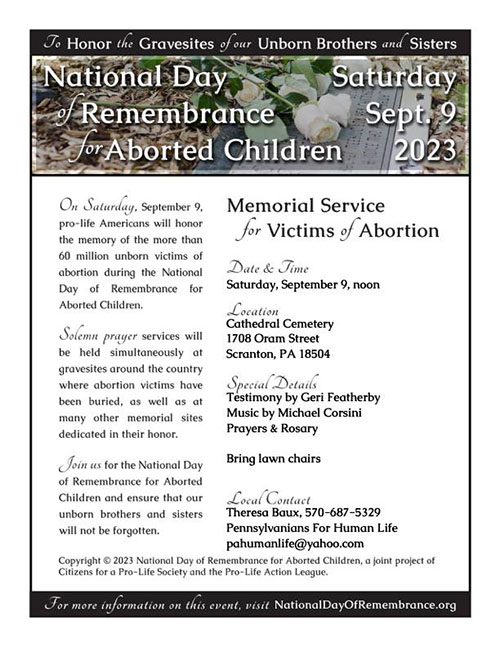
 August 7, 2023
August 7, 2023